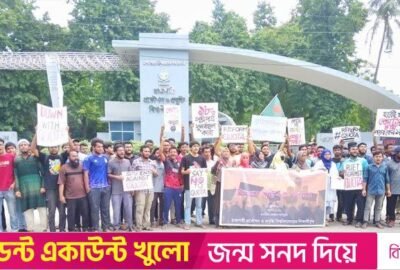Anticipated high cost of BJP’s divisive strategy
India’s just-concluded elections, one of the most polarizing and divisive rounds in modern times, have reached their conclusion. As the nation awaits the results today, the underlying issues concerning voters, such as soaring youth unemployment at nearly 50 percent and a vast wealth gap, remain at the forefront. However, instead of addressing these pressing concerns, the ruling Bharatiya Janata Party (BJP) has focused on stoking division, particularly through populist Hindu nationalist rhetoric. This strategy, while potentially effective in maximizing turnout among the Hindu majority, carries significant and dangerous costs for India’s social fabric and democratic integrity.
In BJP-governed states with substantial minority populations, the consequences of these divisive tactics are most evident. Non-Hindu communities have faced severe discrimination and disenfranchisement. The phenomenon known as “bulldozer justice” has seen entire districts demolished for allegedly lacking proper permits, disproportionately affecting non-Hindus. Furthermore, many individuals from these communities have found themselves inexplicably removed from voter rolls, further marginalizing their political voice.
The situation in Uttar Pradesh is particularly alarming. Reports of police attacking and dispersing non-Hindus who attempted to vote highlight a blatant disregard for democratic principles. In Kashmir, the revocation of the region’s special autonomous status in 2019 has intensified anti-BJP sentiments, leading to higher voter turnout against the party. However, opposition parties have accused the police of detaining and intimidating party workers and suppressing votes, further eroding trust in the electoral process.
In Assam, a process known as “delimitation” has effectively disenfranchised non-Hindu communities by requiring them to travel over 100 kilometers to reach their nearest voting center. Opposition parties argue that this gerrymandering ensures that no Muslim candidate can win, cementing BJP’s political dominance at the cost of fair representation.
The BJP’s aggressive tactics extend beyond voter suppression. The Congress party’s bank accounts were frozen in February over tax disputes, and senior opposition leaders have been jailed on dubious charges. Media outlets perceived as insufficiently favorable to the BJP have faced a purge, including the BBC. Simultaneously, a plethora of supportive media institutions tirelessly promote the prime minister and the BJP, creating an uneven playing field. The elections have also seen a surge in AI-generated deep-fake content and online misinformation, exacerbating the already contentious political climate.
On the international stage, India’s foreign policy under Prime Minister Narendra Modi is fraught with contradictions. Initially, Modi sought to cultivate China as a key economic partner. However, Xi Jinping’s expansionist nationalism has strained this relationship, pushing India to seek closer ties with the United States. The Biden administration’s eagerness to secure India as an ally against China, Russia, and Iran has led to a willingness to overlook India’s democratic shortcomings. India’s stance on global issues like the Ukraine conflict is equally ambivalent, reflecting its dependence on oil from Russia and Iran. Moreover, while Modi has pursued stronger ties with Gulf Cooperation Council (GCC) states, he is also one of the few world leaders to have strengthened relations with Israel since the Gaza conflict.
Domestically, Modi’s rhetoric has been a major source of division. At a rally, he accused the Congress party of prioritizing Muslims and suggested that if they return to power, they would distribute wealth to those with larger families, implying Muslims. This narrative of Muslims as “infiltrators” with higher birth rates to displace Hindus has been a recurring theme in BJP’s election propaganda. The myth of “Love Jihad,” where Hindu women are allegedly seduced and forcibly converted to Islam, has been heavily promoted. BJP state governments have introduced anti-conversion legislation and targeted interfaith couples, feeding into this divisive narrative.
Bollywood has not been immune to this trend. Films like “Kerala Story,” which claimed that thousands of women in Kerala were forcibly converted to Islam and recruited by Daesh, have been promoted by BJP politicians. These propagandistic films contribute to the demonization of non-Hindu communities, reinforcing prejudices and exacerbating social divisions.
India’s more than 200 million Muslims are viewed by the BJP as the primary threat to their vision of Hindu supremacy. This has resulted in growing discrimination in employment and education and increasingly systematic barriers to social advancement. While Modi’s India is often portrayed as an economic miracle, with significant infrastructure projects and increased access to technology, banking, and consumer goods, these achievements are overshadowed by widening social inequalities. The top 10 percent of the population holds 77 percent of the national wealth, and the 2019 citizenship law threatens to render millions stateless.
BJP-aligned right-wing organizations have operated with impunity, engaging in communal violence and lynching non-Hindus accused of smuggling beef. Hate speech has soared, with a significant proportion occurring in BJP-ruled states. This trend mirrors the rise of populist and fascist movements globally, where communal and religious hatreds are exploited for political gain.
Reflecting on the words of Indira Gandhi, whom I had the bittersweet pleasure of interviewing in 1984 just hours before her assassination, India’s inherent diversity is its strength. Gandhi emphasized that India must be a state for all its people, not a democracy for only one segment of the population. The BJP’s tactics may secure electoral victories, but the social turmoil and divisions they engender threaten the very fabric of Indian society. In the long run, all segments of society stand to lose from this dangerous strategy.
Disclaimer: Views expressed in this article are solely of the author and does not reflect the editorial policy of this newspaper.
The post Anticipated high cost of BJP’s divisive strategy appeared first on BLiTZ.






